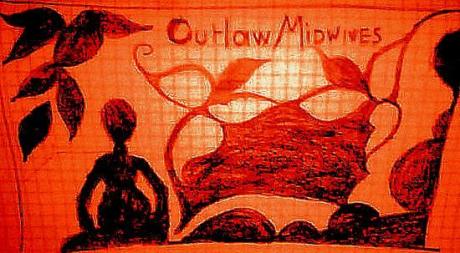call for submissions
focusing on pregnancy, birth, post partum, baby and breastfeeding
for and by: mothers, friends and allies of mothers, doulas, midwives, birthworkers, childbirth educators, childbirth advocates,
intention: to create a zine for pregnancy, birth, and the first year of motherhood centering the lives of working class, marginalized mothers and birthworkers.
submit: photos, drawings, visual art
poems, essays, fiction and non-fiction
tips, suggestions, lists of resources
check out the outlaw midwives manifesta and website: https://outlawmidwife.wordpress.com/
outlaw midwives: creating revolutionary communities of love
some suggestions for topics on which you can submit…but these are just suggestions…
suggestions for those trying to conceive. and for not conceiving. stories of conception, abortions and miscarriage.
what are the social, economic, legal consequences and limitations for marginalized mothers to make choices about how, when and where they will give birth.
tips for the first, second, third trimester. relationship with doctors, clinic, midwives, family, friends, etc.
how do our ideas of gender and sexuality influence how we view childbearing, midwifery, and parenting?
Your take on reproductive justice?
how do we resist the high infant and mortality rates?
what are the ways that community could support the childbearing year, mothers and families?
how have you navigated through the systems of welfare, protective child services, hospitals, etc?
reflect on the state of midwifery today. what do you see as the positives and negatives? how has legalization and licensing affected mothers and families access to care?
what would you want to tell a soon to be mother about pregnancy, birth, and early motherhood? or write a letter to your pre-mother or pre-pregnant self about what you should expect. what didnt you expect to happen/learn/experience in pregnancy, birth, the baby year? write a letter to you daughter and/or son about what you learned/want to pass on about pregnancy, birth, baby year.
what was your personal experience/story of birth? pregnancy, the baby year?
what did you learn/are you learning from the baby year?
what do you wish someone had told you about early motherhood and/or being a birth worker?
what do you wish you could have said to someone, but didnt?
what is your vision/ideal of how pregnancy, birth, baby year could be?
what family/traditional wisdom did you receive about pregnancy, birth, breastfeeding? what practical tips do you have for working poor mothers?
breastfeeding vs. bottle. what are the social, biological and economic influences and consequences of the choice to breastfeed or bottle feed?
what to do with the placenta? placenta art, consumption, burials?
why did you become a birth worker? what has been the highlights of the experience? what have been the difficulties?
what does ‘outlaw midwife’ mean to you?
keep it simple
deadline may 15
send submissions to maiamedicine at gmail dot com

